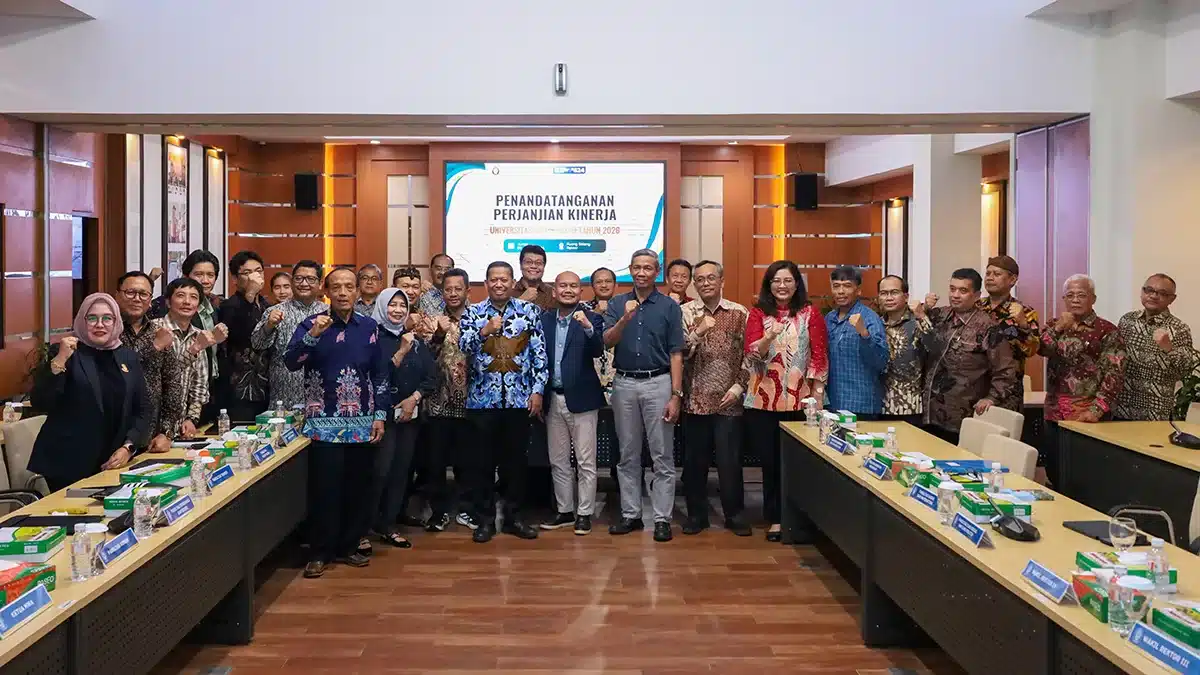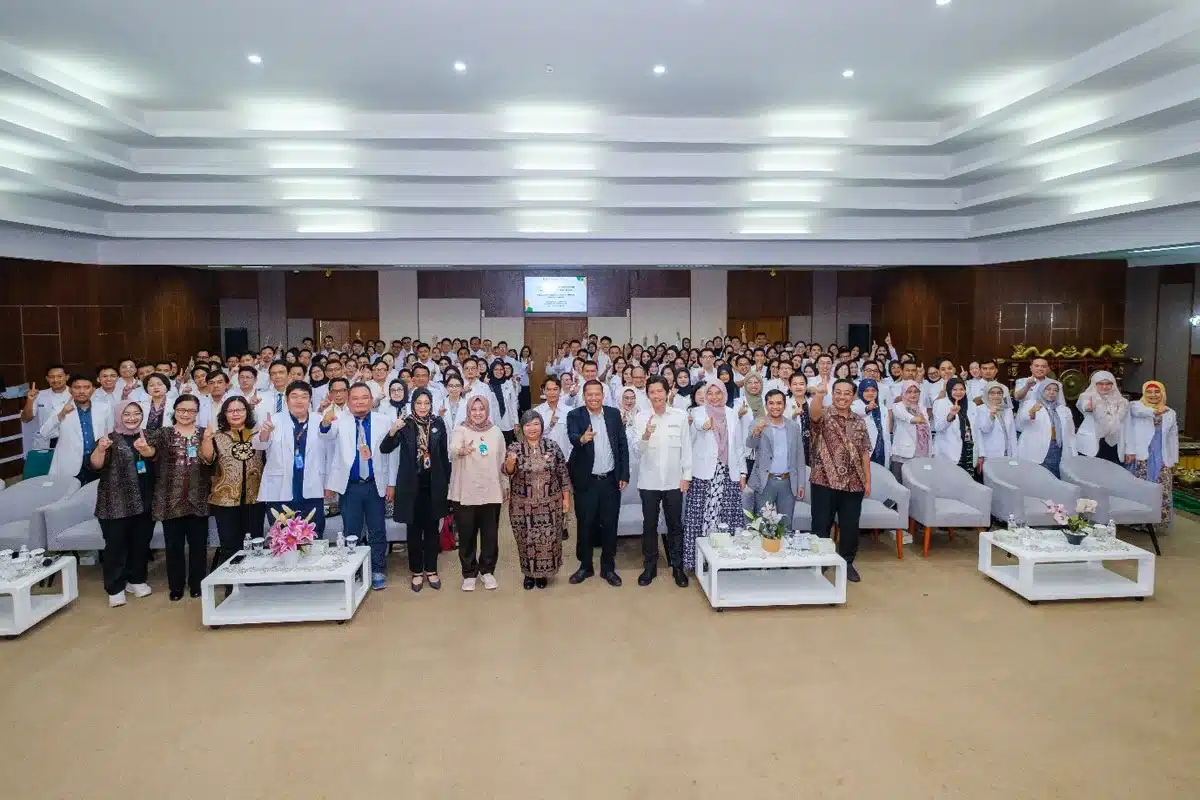SEMARANG – Diponegoro University (Undip) supports the government’s efforts through the Ministry of Industry to implement a green industrial park (KIH) policy or eco industrial park. This was stated by the Dean of Undip Postgraduate School Dr. RB Sularto, S.H., MHum, and Prof. Dr. Ir. Purwanto, DEA from Undip Postgraduate School of Green Technology Research Center, in a webinar on the Development and Implementation of Green Industrial Zone, Saturday (7/25/2020).
‘’ This activity is held to support the development of green technology. Many things both academically, practically as well as with policies that need to be discussed. In addition, we will also conduct energy efficient studies in industrial areas,” said RB Sularto.
Discussions were held by the Green Technology Research Center of the Undip Postgraduate School with the Ministry of Industry. The moderator of the discussion was the Dean of the Faculty of Engineering Undip, Prof. Ir. M Agung Wibowo, MM., MSc., PhD. The other speakers were the Director of Industrial Area of the Director General of Resilience, Regional and International Industry Access of the Ministry of Industry, Ignatius Warsito, and the President Director of PT. AKR Corporindo, Haryanto Adikoesoemo. PT. AKR Corporindo which is a multinational company that supplies fuel and natural gas to industrial areas.
According to Sularto, the application of the green industrial zone (KIH) is essentially a good attempt to create efficient domestic industries that are environmentally friendly. The presence of industrial zone in a number of regencies and cities requires government support in order to turn it into green industrial zones.
Prof. Purwanto from Undip Postgraduate School of Green Technology Research Center reminded that in developing the area, the KIH concept had to be designed from the basic. Indeed, it can also revitalize the existing green industrial zone but it also needs an extra effort. “It takes an approach and practice to create clean production,” he said.
The core of the green industry zone, according to Purwanto, is the occurrence of synergy between industries in an area, as well as the formation of a green industry network. Here the actors together improve their environmental, economic and social performance through the management of environmental and resource issues. In the future, he added, KIH’s policy will also make smart industrial zone.
What needs to be noted, is the design of the KIH that must be based on a number of needs and supporting public facilities such as the availability of electricity, water, joint waste treatment plants, waste recycling, equipment repairs, research and education and training for the workforce.
For areas that have not been designed according to the KIH concept, commitment from top industry managers is necessary. It is necessary to identify and opportunities for collaboration to build a mutually beneficial symbiosis to improve environmental performance. “We can take a picture from the existing KIH,” he explained.
The Director of Industrial Zone of the Director General of Resilience, Regional and International Industrial Access of the Ministry of Industry, Ignatius Warsito, revealed that the KIH concept implements Law No. 3 of 2014 concerning Industry with the aim of creating an independent, competitive, developed and green industry.
“In the 2020-2024 RPJMN, the governments are targeting the addition of 27 new industrial zones. In the direction of national policy, we hope that the development of this industrial zone will not be limited to utilizing space and land, but also environmentally friendly and can implement the industry 4.0,” said Warsito.
For the target of 27 units of industrial zones, 9 of which are priorities, while the other 18 are industrial development zones. The managerial status of the industrial zone includes BUMN and Affiliates, BUMD, and the private sector.
“Yesterday we visited Batang, this new region is environmentally friendly. But we recommend the use of artificial intelligence so that water use and transportation can be more efficient. That way, we are able to compete internationally,” he said.
Regarding infrastructure, the government continues to encourage supporting facilities in industrial zones such as access to tolls, ports and railways to ensure smooth distribution. Also note the availability of water, electricity and gas.








